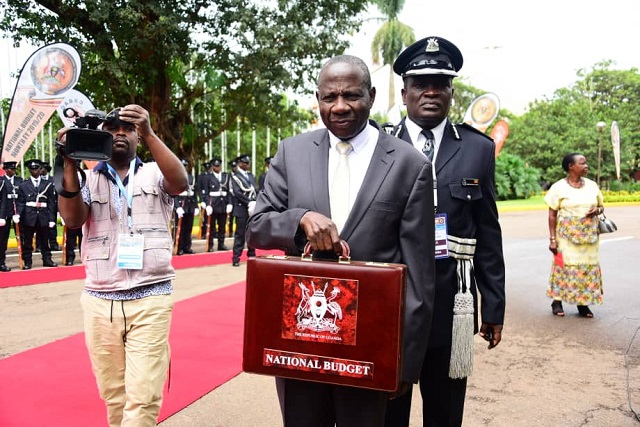
CSOs want government to control debt, increase budget for key social sectors
Kampala, Uganda | JULIUS BUSINGE | Civil society organisations under their umbrella body, Civil Society Budget Advocacy Group (CSBAG) have listed a number of concerns that they would like the government to pay attention to as it debates and considers approving the new budget.
Speaking to journalists at CSBAG headquarters in Ntinda on Jan.12, Julius Mukunda, the coordinator and Agnes Kirabo, a member and others said that the government needs to expedite the finalisation of the National Development Plan III so that the planning process of the next financial year is not distorted.
They said the National Budget Framework Paper for FY2020/21 seeks to achieve the objectives of the NDP III which is at formulation stage but it is in contravention with Section 9 (3) of the Public Finance and Management Act, 2015, that requires the minister to prepare a Budget Framework Paper which is consistent with the National Development Plan and with the Charter for Fiscal Responsibility.
They also said that supplementary budget requests have continued to distort planning and budgeting process and hence affecting its credibility.
Some of the supplementary items in FY2018/19 such as the Shs2.28bn for Soroti University for Student enrolment, Shs60.212bn for e-passports and Shs1.2bn to the Education Service Commission for recruitment of 3,000 education service staff were not unavoidable, unforeseeable and unabsorbable.
“Whereas we appreciate that supplementary budgets are part of economic performance, we call on enforcement of the PFMA regulations of unavoidable, unforeseeable, unabsorbable,” officials said.
The group also notes that there are gaps in Petroleum Fund management. They are concerned about the lack of petroleum expenditure plan which encourages ad-hoc spending of the petroleum revenues. For example, they said, Shs700billion from the petroleum fund has been depleted just in two years to finance the budget and no funds have been allocated to petroleum investment reserves contrary to sections 58 and 59 of PFMA 2015.
“We call for review of the PFMA, 2015 to include an expenditure cap on Petroleum revenues transferred to Consolidated Fund and also MoFPED should establish petroleum revenue utilization plan to avoid ad-hoc spending,” the group said.
It is also concerned about the country’s debt status given the poor performance of projects for which this debt is attained. For example, they said that the works and transport sector received $912.40million out of the $2,602.40million committed loans representing 35% level of disbursement.
As of December 2018, $3.86bn (34% of the public and publicly guaranteed debt) was loan commitment, which have not yet been disbursed, thus negatively affecting service delivery and general performance of the economy.
“Government needs to ensure that we get more returns from these projects, starting with improving project performance, and critically assessing our Public Investment Management (PIM),” they added.
 The Independent Uganda: You get the Truth we Pay the Price
The Independent Uganda: You get the Truth we Pay the Price



